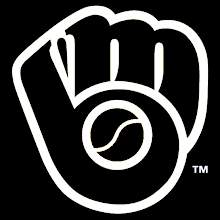DEATH be not proud, though some have called thee
Mighty and dreadfull, for, thou art not so,
For, those, whom thou think'st, thou dost overthrow,
Die not, poore death, nor yet canst thou kill me.
From rest and sleepe, which but thy pictures bee,
Much pleasure, then from thee, much more must flow,
And soonest our best men with thee doe goe,
Rest of their bones, and soules deliverie.
Thou art slave to Fate, Chance, kings, and desperate men,
And dost with poison, warre, and sicknesse dwell,
And poppie, or charmes can make us sleepe as well,
And better then thy stroake; why swell'st thou then;
One short sleepe past, wee wake eternally,
And death shall be no more; death, thou shalt die.
By: John Donne
In the poem “Death Be Not Proud” by John Donne death is personified and is used as a metaphor in which death is compared to a person. Throughout the poem the personification of death creates a feeling that death is less powerful than we think. Donne degrades and undermines death when he says “Mighty and dreadful, for thou art not so; For those whom thou think'st thou dost overthrow Die not, poor death, nor yet canst thou kill me” (Donne Lines 2-4). Death is placed as an inferior being when he calls him “poor death”. Basically by making death appear human, he makes it less intimidating then it really is.
This poem consists of just one stanza which could mean that Donne wanted to list or rant on about how powerless death is. The rhyme scheme of “Death Be Not Proud” is ABBA, ABBA, CDDC, EE. Donne says “And soonest our best men with thee do go” (Donne Line 7). Donne is saying that the good die young, as if death is a form of reward. After this Donne makes a metaphor between a slave and death. He says “says death is a slave to fate, chance, kings, and desperate men” (Donne Line 9). Donne takes away deaths power considerably, as a slave has no power or control of his own.
In being personified into a slave that has many masters, death is extremely bound to its own faith. Death’s lack of freedom in choosing victims takes away any reason to be fearful of death. At the end of the poem Donne says “One short sleep past, we wake eternally, And death shall be no more; death, thou shalt die (Donne Lines 13-14). Knowing that Donne is Christian he mentions that death is just one short phase until eternal life. Donne ends the poem with paradox and irony when he says “death shalt die” (Donne 14).
Thursday, January 29, 2009
Subscribe to:
Post Comments (Atom)

1 comment:
Nice work!
Post a Comment